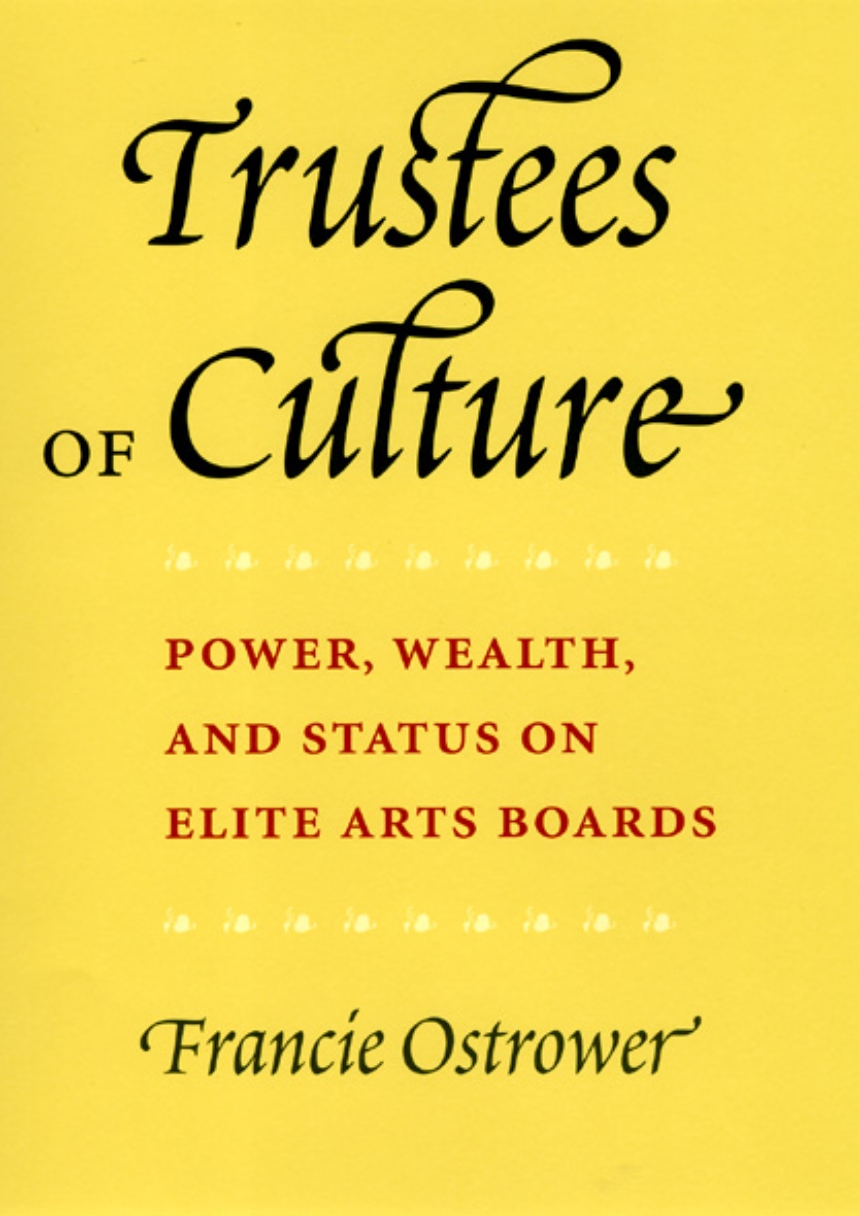Trustees of Culture
Power, Wealth, and Status on Elite Arts Boards
9780226639673
9780226639666
9780226778860
Trustees of Culture
Power, Wealth, and Status on Elite Arts Boards
Cultural trusteeship is a subject that fascinates those who wonder about the relationship between power and culture. What compels the wealthy to serve on the boards of fine arts institutions? How do they exercise their influence as trustees, and how does this affect the way arts institutions operate? To find out, Francie Ostrower conducted candid personal interviews with 76 trustees drawn from two opera companies and two art museums in the United States.
Her new study demonstrates that members of elite arts boards walk a fine line between maintaining their status and serving the needs of the large-scale organizations they oversee. As class members whose status depends in part on the prestige of the boards on which they serve, trustees seek to perpetuate arts boards as exclusive elite enclaves. But in response to pressures to increase and diversify the audiences for arts institutions, elite board members act in a surprisingly open manner in terms of organizational accessibility and operations.
Written with clarity and grace, Trustees of Culture will contribute significantly to our understanding of organizational governance; the politics of fundraising; elite arts participation and philanthropy; as well as the consequences of wider social policies that continue to emphasize private financial support. Ostrower’s study will prove to be indispensable reading for not just sociologists of culture, but anyone interested in how the arts are financially and institutionally supported.
Her new study demonstrates that members of elite arts boards walk a fine line between maintaining their status and serving the needs of the large-scale organizations they oversee. As class members whose status depends in part on the prestige of the boards on which they serve, trustees seek to perpetuate arts boards as exclusive elite enclaves. But in response to pressures to increase and diversify the audiences for arts institutions, elite board members act in a surprisingly open manner in terms of organizational accessibility and operations.
Written with clarity and grace, Trustees of Culture will contribute significantly to our understanding of organizational governance; the politics of fundraising; elite arts participation and philanthropy; as well as the consequences of wider social policies that continue to emphasize private financial support. Ostrower’s study will prove to be indispensable reading for not just sociologists of culture, but anyone interested in how the arts are financially and institutionally supported.
158 pages | 5-1/4 x 8 | © 2002
Art: American Art
Music: General Music
Sociology: Formal and Complex Organizations, Social Organization--Stratification, Mobility, Sociology of Arts--Leisure, Sports
Table of Contents
Acknowledgments
Introduction
1. Elite Trustees: A Profile
2. A Dual Approach: Openness and Exclusivity on the Elite Board
3. Diversity and the Elite Board: Race, Ethnicity, and Class
4. Fundraising and the Role of the Elite Board
5. Status and Governance: A Delicate Balance
6. Conclusion
Notes
Bibliography
Index
Introduction
1. Elite Trustees: A Profile
2. A Dual Approach: Openness and Exclusivity on the Elite Board
3. Diversity and the Elite Board: Race, Ethnicity, and Class
4. Fundraising and the Role of the Elite Board
5. Status and Governance: A Delicate Balance
6. Conclusion
Notes
Bibliography
Index
